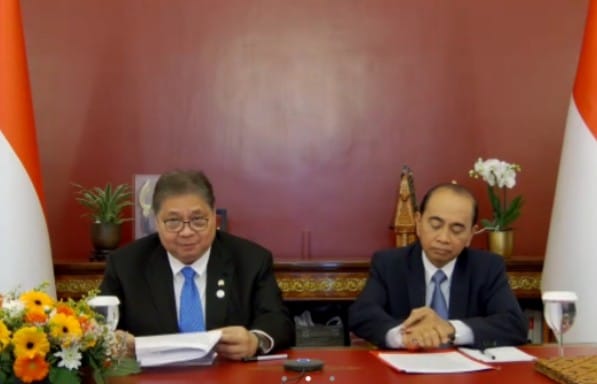Businesses Eye Economic Boost from IEU-CEPA as EU Focuses on Local Content and Critical Minerals
Main Takeaways
|
JAKARTA, investortrust.id – Indonesia’s government and business community are optimistic that the Indonesia-European Union Comprehensive Economic Partnership Agreement (IEU-CEPA), now in its final stages, could become a powerful catalyst for export-led growth, investment inflows, and job creation.
Apindo Chair Shinta W Kamdani said the long-anticipated agreement could strengthen Indonesia’s global trade position, particularly in accessing the European market. “If Indonesia can seize the market opportunities created by IEU-CEPA, this agreement could boost export performance, investment, formal sector employment, and ultimately national economic growth,” Shinta told Investortrust.id on Monday, June 9, 2025.
However, she emphasized that to fully harness IEU-CEPA’s potential, the government must assist micro, small, and medium enterprises (MSMEs) in meeting international standards—especially those applied in European markets. “Large-scale companies are generally familiar with global certification and production requirements, but MSMEs still face barriers related to compliance, efficiency, and financing,” she added.

EU Priorities: Local Content, Critical Minerals, and CPO
Speaking in a virtual press conference on Saturday, June 7, Coordinating Minister for Economic Affairs Airlangga Hartarto revealed that the EU will prioritize several key issues as part of the final agreement, including Indonesia’s local content requirement—known as Tingkat Komponen Dalam Negeri (TKDN)—critical minerals, the automotive sector, and investment incentives.
“These issues were specifically raised by European Union Commissioner for Trade and Economic Security Maros Sefcovic, and both sides have reached common ground on the principles of trade and sustainable growth,” Airlangga said.
Indonesia, for its part, will focus on improving market access for labor-intensive sectors such as footwear, textiles, garments, and fishery products. “These are sectors where we seek maximum market access,” he said.
In addition, Airlangga confirmed that palm oil exports will receive “special consideration” in the final deal. Although Indonesia’s palm oil industry currently faces no short-term restrictions, Jakarta has pushed to delay the European Union Deforestation Regulation (EUDR) until 2026.
“We’ve reached progress on key issues like sustainability and traceability. Now it’s about harmonizing our regulations with the EU,” he added.
According to Investortrust research, palm oil and its derivatives made up 8.54% of Indonesia’s total non-oil and gas exports between January and April 2025. Despite a 5.37% decline in export volume, the average selling price surged 26.54% year-on-year to $1,099.82 per ton, with major buyers including Germany, Italy, the Netherlands, Spain, and Switzerland.
Pushing Creative Exports, Ensuring Standards
Airlangga also outlined plans to boost creative economy exports, particularly craft and handmade goods, often referred to as produk kriya. “Products rooted in creativity and innovation can gain traction in Europe, especially if they meet national and EU standards,” he said.
He acknowledged, however, that Indonesian products have long competed on an uneven playing field. “Our goods face tariffs of 10–20%, while Vietnamese products enter duty-free. Even under that disadvantage, we’ve still entered the European market.”
Shinta echoed this concern, underscoring the need for joint public-private efforts to ensure that Indonesian businesses, especially MSMEs, can compete effectively. “The IEU-CEPA must go hand-in-hand with mentoring and capacity-building programs. This is a shared responsibility,” she said.

